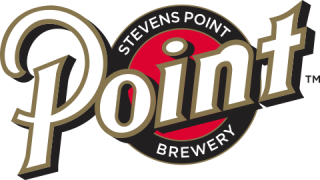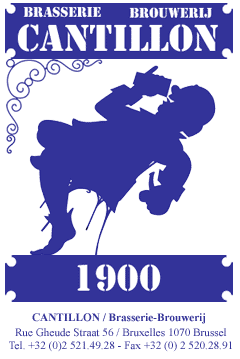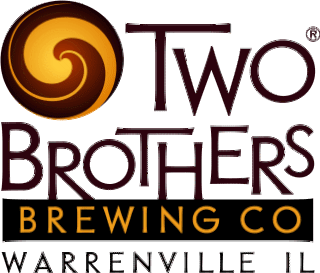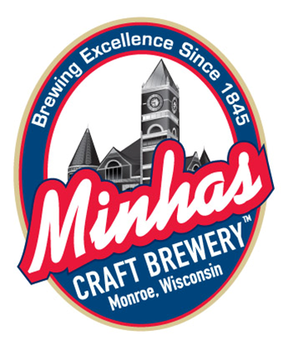
Beer is one of the oldest alcoholic drinks in the world, the most widely consumed, and the third most popular drink after water and tea. Beer is produced by the brewing and fermentation of starches from cereal grains—most commonly malted barley, although wheat, maize (corn), rice, and oats are also used. The fermentation of the starch sugars in the wort produces ethanol and carbonation in the beer. Most modern beer is brewed with hops, which add bitterness and other flavours and act as a natural preservative and stabilising agent. Other flavouring agents, such as gruit, herbs, or fruits, may be included or used instead of hops. In commercial brewing, natural carbonation is often replaced with forced carbonation.

Royal Swinkels is a family business from North Brabant in the Netherlands, that is active in the beer, soft drink and malt sector. The company is fully owned by the Swinkels family for seven generations. The head office is located in Lieshout and there are subsidiaries in twelve countries.

Pale ale is a golden to amber coloured beer style brewed with pale malt. The term first appeared in England around 1703 for beers made from malts dried with high-carbon coke, which resulted in a lighter colour than other beers popular at that time. Different brewing practices and hop quantities have resulted in a range of tastes and strengths within the pale ale family.

Joseph Schlitz Brewing Company is an American brewery based in Milwaukee, Wisconsin, and was once the largest producer of beer in the United States. Its namesake beer, Schlitz, was known as "The beer that made Milwaukee famous" and was advertised with the slogan "When you're out of Schlitz, you're out of beer". Schlitz first became the largest beer producer in the US in 1902 and enjoyed that status at several points during the first half of the 20th century, exchanging the title with Anheuser-Busch multiple times during the 1950s.

Stevens Point Brewery is a regional American brewery located in Stevens Point, Wisconsin. The brewery is the fifth-oldest continuously operating brewery and the third-oldest privately owned brewery in the nation.

Bernie Brewer is the official mascot for the Milwaukee Brewers baseball team.

Sprecher Brewery is a brewery in Glendale, Wisconsin, U.S. It was founded in 1985 in Milwaukee by Randal Sprecher, and is Milwaukee's first craft brewery since Prohibition. Sprecher produces an assortment of beers, flavored malt beverages, and craft sodas, and it is famous for its root beer.

Brasserie-Brouwerij Cantillon is a small Belgian traditional family brewery based in Anderlecht, Brussels. Cantillon was founded in 1900 and brews exclusively lambic beers.
Beer in Africa, especially lager, is produced commercially in most African countries, and indigenous people also make varieties of beer. Beer is served in various locales, from neighbourhood shebeens to upscale bars. Many countries have standardized beer bottle sizes, which are cleaned and re-used, so when buying beer at a store, people often must pay a deposit on the bottle and the price of the beer. An alternative to glass-bottle beers is local beer sold in tetra-pak style paper cartons.
Gluten-free beer is beer made from ingredients that do not contain gluten, such as millet, rice, sorghum, buckwheat or corn (maize). People who have gluten intolerance have a reaction to certain proteins in the grains commonly used to make beer, barley and wheat. The hordein found in barley and the gliadin found in wheat are types of gluten that can trigger symptoms in sufferers of these diseases. Gluten-free beer is part of a gluten-free diet.

Two Brothers Brewing Company is an independently owned Illinois-based microbrewery founded by brothers Jim and Jason Ebel in 1996. The brothers brought their knowledge of different brewing styles to the Chicago craft brew market after living in Europe and experiencing the variety of beers available there. Jim and Jason started the business using bulk milk tanks converted into fermenters that were donated to them by their grandfather who was a retired dairy farmer. Two Brothers Brewing has now been in business for over 20 years and has opened multiple locations throughout the Chicago metropolitan area, as well as one in Arizona.

Karl Martin Strauss was a German-American brewer. He fled Nazi Germany in 1939, and went on to become a brewer, executive, and consultant in the American brewing industry. He received numerous awards during his career, which spanned both the large national brewery and the microbrew segments of the industry. Karl Strauss Brewing Company, which he helped found in 1989, continues to bear his name.

The beers of the Caribbean are unique to each island in the region, although many are variants of the same style. Each island generally brews its own unique pale lager, the occasional stout, and often a non-alcoholic malta beverage. Contract-brewing of international beers is also common, with Heineken Pilsener and Guinness Foreign Extra Stout being the most popular. The beers vary between the islands to suit the taste and the brewing method used.
Brasserie de Brunehaut is the trade name for Brunehaut brewery, located in Rongy-Brunehaut (Hainaut), Wallonia, 80 km south/southwest of Brussels, Belgium, near the French border.

Beer in Scotland is mostly produced by breweries in the central Lowlands, which also contain the main centres of population. Edinburgh and Alloa in particular became noted for the export of beer around the world in the 19th century.

A tower brewery is a distinct form of brewery, identified by its external buildings being arranged in the form of a vertical tower.

The Minhas Craft Brewery is located in Monroe, Wisconsin, owned by brother and sister, Ravinder and Manjit Minhas. It is the Midwest's oldest brewery and the second oldest in the United States. It survived the Great Depression, Prohibition and a fire. It is currently the 18th largest craft brewery in America.

Milwaukee, Wisconsin, has one major brewery and dozens of microbreweries, and is home to several iconic beer brands from a variety of brewers. It has had an association with beer throughout its history, with the brewing industry getting its start prior to its official founding as a city and was nationally recognized as such by the end of the 19th century. This heritage can be found explicitly in its Major League Baseball team, the Milwaukee Brewers, and on recognizable beer brands such as Old Milwaukee and Milwaukee's Best. This recognition of Milwaukee as a brewing hub dates back to the early 20th century, and boasted the world's largest brewing capacity as late as 1981. The city is nationally recognized with the nickname "Brew City" due to its nearly two centuries of brewing heritage from multiple past major brewers including Miller Brewing Company, Pabst Brewing Company, and Joseph Schlitz Brewing Company. Today, through the ownership of MillerCoors, the city's largest brewery produces 10 million barrels of beer annually.















